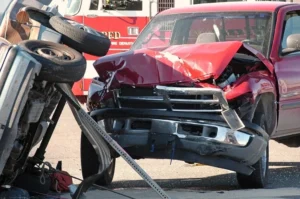How to Handle Personal Injury Claims Involving Out-of-State Drivers in Florida

Accidents involving out-of-state drivers can add complexity to personal injury claims in Florida. Understanding the nuances of these cases is essential for effectively pursuing compensation. Here’s a guide on how to handle such claims.
1. Report the Accident to Local Authorities
The first step after an accident is to ensure that it is reported to local law enforcement. This will create an official record of the incident, which is crucial for any insurance claims or legal actions that follow. For out-of-state drivers, the police report will document the driver’s out-of-state status and may include details on the scene that could be pivotal to your claim.
2. Gather Information
Collect as much information as possible at the scene of the accident. This includes:
- Driver’s Information: Name, address, phone number, and insurance details of the out-of-state driver.
- Vehicle Information: License plate number and vehicle identification number (VIN).
- Witnesses: Contact information for any witnesses who saw the accident.
- Photographs: Take clear photos of the accident scene, vehicle damage, and any injuries.
3. Contact Your Insurance Company
Notify your insurance company about the accident as soon as possible. Your insurer will guide you through the claims process and may need to coordinate with the out-of-state driver’s insurance company. Be prepared to provide them with the details and documentation you collected.
4. Understand Florida’s Insurance Requirements
Florida follows a no-fault insurance system, which means that your own insurance company will cover your medical expenses and lost wages regardless of who was at fault. However, if your injuries are severe and exceed the limits of your Personal Injury Protection (PIP) coverage, you may need to file a claim against the out-of-state driver’s insurance.
5. Determine Liability and Coverage
Determining liability in accidents with out-of-state drivers involves understanding both Florida’s traffic laws and those of the state where the driver is licensed. Insurance coverage also needs to be verified. Out-of-state drivers may have different minimum coverage requirements, which could impact the compensation available for your claim.
6. Consider Legal Action
If the insurance claims process does not resolve your case satisfactorily, you may need to consider legal action. An out-of-state driver can complicate the process, as it may involve filing a lawsuit in Florida or in the state where the driver resides. This often requires navigating interstate legal procedures.
7. Consult with a Personal Injury Attorney
Given the complexities of handling personal injury claims with out-of-state drivers, consulting with a personal injury attorney is advisable. An attorney can help you understand your rights, negotiate with insurance companies, and manage any legal proceedings that may arise.
Conclusion
By following these steps, you can better navigate the challenges associated with personal injury claims involving out-of-state drivers. Proper documentation and understanding of both Florida and out-of-state insurance laws are key to securing the compensation you deserve.

 Call Us Today
- It's Free
Call Us Today
- It's Free